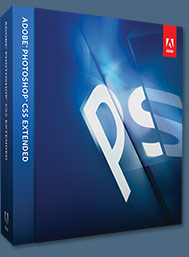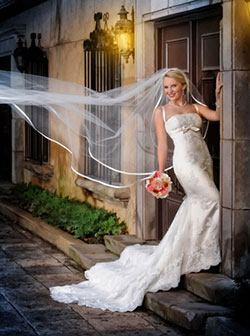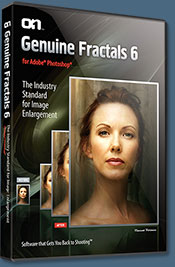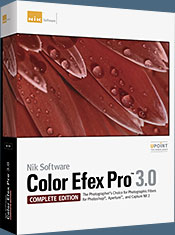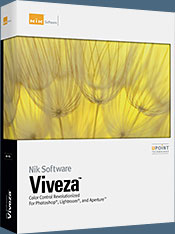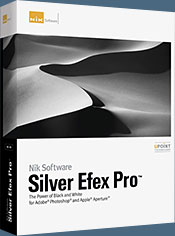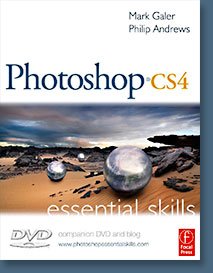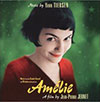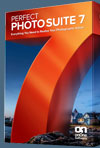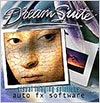![]()
![]()
![]() Buy. Download. Create. Get Photoshop now at the Adobe Store.
Buy. Download. Create. Get Photoshop now at the Adobe Store.
![]() Photoshop for Students. Get super savings at the Adobe Education Store.
Photoshop for Students. Get super savings at the Adobe Education Store.
![]()
![]()
Using Channels To Mask Out Difficult Images In Photoshop
It would be very difficult and time consuming to separate this image from the background because of the complexity and fine detail involved with the feathers on the woman's headdress. This tutorial will focus on using Channels to help mask out complex objects with clean edges. This technique will also save you a lot of time. The initial goal is to separate the feathers from the pink background on the left side of the face, and there are lots of places where tiny bits of pink are showing through the feathers. We will use Alpha Channels, Quick Masks, Levels, Brushes and Color Range.
STEP 1 - Make A Duplicate Layer
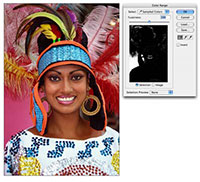 Make a duplicate layer of the image. This way the original is preserved on the background and we are working on a duplicated layer. Hide the background by clicking off its visibility icon. Choose Select> Color Range from the Menu.
Make a duplicate layer of the image. This way the original is preserved on the background and we are working on a duplicated layer. Hide the background by clicking off its visibility icon. Choose Select> Color Range from the Menu.
When the Color Range Dialog box open, choose the Left Eye Dropper tool and click on the background color in the image window (pink). You will see the selected color turn white in the dialog box.
Move the Fuzziness slider until the image is mostly black and the background is a clean as you can get it. Tip: To add a color to the selection click on the eyedropper tool with the plus sign and click in the image. Click OK.
STEP 2 - Switch To The Channels Palette
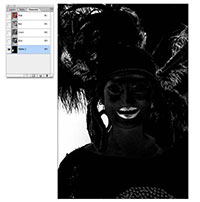 With the selection active, switch to the Channels palette. Click the Create New Alpha Channel button, it's the second one to the right on the bottom of the channels palette.
With the selection active, switch to the Channels palette. Click the Create New Alpha Channel button, it's the second one to the right on the bottom of the channels palette.
A new alpha channel will now be visible. Press "Ctrl/Cmd+D" to Deselect and click on Alpha 1 in the channels palette.
The main window will now turn black and white. The advantage of using a channel is the ability to fine tune the selection without effecting the original image. Black represents the areas that we want to keep and white, the areas to be discarded.
STEP 3 - Click Image> Adjustments> Levels
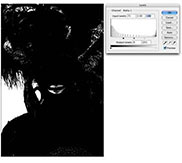 Notice that there are areas of gray, these would be semi-transparent and need to become solid black and white (except for areas that should be semi-transparent such as soft edges). There are tiny dots also visible, and these will make for a very messy selection. Here is a quick solution that I have come up with: Click Image> Adjustments> Levels.
Notice that there are areas of gray, these would be semi-transparent and need to become solid black and white (except for areas that should be semi-transparent such as soft edges). There are tiny dots also visible, and these will make for a very messy selection. Here is a quick solution that I have come up with: Click Image> Adjustments> Levels.
In the levels Dialog box, click the black point slider on the left and drag it to the right until the gray areas have become a solid black, Slide the White point slider to the left until the whites are nice and clean and the grainy effect has gone. Click OK to apply.
STEP 4 - Fine Tune The Mask
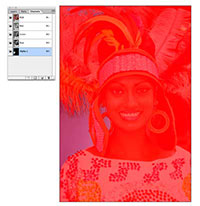 Time to fine tune the mask. Choose a black brush and make the edge hard. Paint over all the areas that belong in the object to mask out. Use a larger brush for large areas and a smaller brush for finer detail such as around the feathers. Use a white paint color to paint out the areas that should be removed.
Time to fine tune the mask. Choose a black brush and make the edge hard. Paint over all the areas that belong in the object to mask out. Use a larger brush for large areas and a smaller brush for finer detail such as around the feathers. Use a white paint color to paint out the areas that should be removed.
STEP 5 - Toggle Views
Sometimes it can be hard to guess which part of the image belongs in the foreground and a peek at the original image is needed. Click on eye icon to the left of RGB at the top of the Channels palette. The original photo is now visible and the mask appears as a reddish color.
Click the eye icon to go back to the mask view. The mask can also be hidden by toggling the eye (visibility icon). Keep going until you have a clean mask.
STEP 6 - Reveal The Masking Effect
 Hold Cmd (Ctrl PC) and click on the Alpha 1 thumbnail. You will now see an active selection. Click on RGB to see the color image. Open the layers palette. Select the working layer and press the Delete key (Backspace on Windows). The masked area of the background will now be removed to reveal a nice clean masking effect. At this point In am only worried about removing the pink background on the left.
Hold Cmd (Ctrl PC) and click on the Alpha 1 thumbnail. You will now see an active selection. Click on RGB to see the color image. Open the layers palette. Select the working layer and press the Delete key (Backspace on Windows). The masked area of the background will now be removed to reveal a nice clean masking effect. At this point In am only worried about removing the pink background on the left.
STEP 7 - Final Details
If there are areas that still need to be removed - such as on the right side of this image, repeat the proceeding steps. Because each image is unique, some will need several passes and some can be done in a single pass.
As you can see, this technique is very effective and the image can be dropped onto any background.
Look at the top left of the image to see how precise the cut out is on the detailed feathers. Try that with the pen tool!
For more cool techniques like this on an easy to follow video format check out Photoshop Secrets For Digital Photographers.
![]()
![]()
![]()
![]()
|
|

